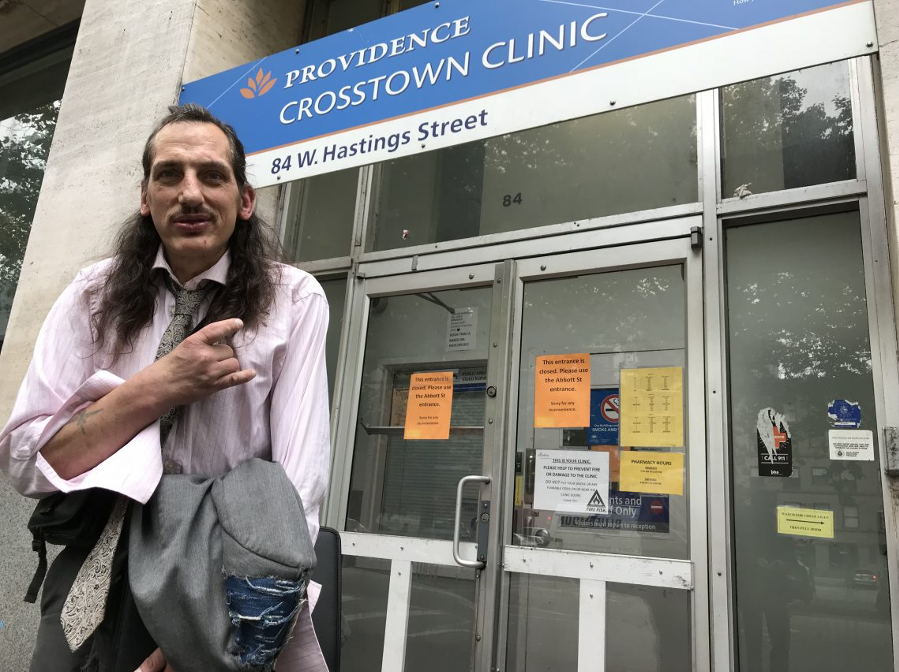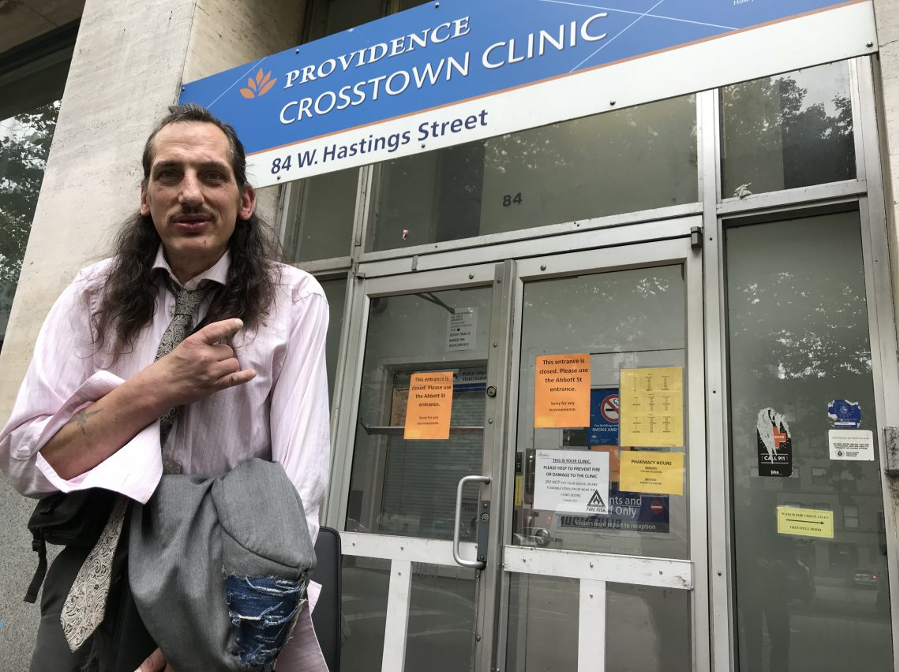Patient Voices is dedicated to amplifying the voices of research participants.

My name is Spike and I am a grateful participant in Opiate Assisted Therapy (injectable opioid agonist treatment) provided by Providence Health Care’s Crosstown Clinic. I am also a member of the Stimulant Replacement Therapy Program offered at the same facility.
I was in a life-threatening car accident in 2007 that left me in a coma. I was in a world of pain when I woke up and was prohibited from receiving much needed opioid analgesics because of stigma toward me as someone with a history of prescribed opioid use. As a result, I embarked on a dangerous course of self-medication. The opioids I took allowed me to breathe, never killing the pain, but making it manageable.
I was forced to do everything that I possibly could think of to manage my pain. I was pushing my weakened and severely broken body, beyond where any human should ever have to exist, all to survive. With my body being as weak as it was, I had little doubt that the withdrawal from opioids, combined with the extreme chronic pain, would have been fatal. I am so lucky to have survived the whole ordeal.
Stimulants entered the picture around 2011 because there weren’t enough hours in the day to find the opioids that I needed to survive. Although it was not possible to create more hours in the day, crystal meth provided the best alternative I could come up with. It allowed me to stay up longer, so that I could chase what I had to chase (opioids).
I was one of the lucky ones because my name came up for SALOME (on the study recruitment waiting list). This study looked at and compared the cost-effectiveness and the overall effectiveness of prescribing heroin (diacetylmorphine) versus hydromorphone (Dilaudid). After the study, Crosstown Clinic’s Opiate Assisted Therapy program was born and I continued to participate in the program.
Society wasn’t very good to me during the time before Crosstown. Because of my many negative experiences within the health care system and within society as a whole, I ended up in a period of deep, dark depression, even though I had finally found a safe supply of opioids at Crosstown. After an extended stabilization period at Crosstown, I started making dramatic lifestyle changes, eventually coming out of my depression. These events happened very shortly after I was introduced to Stimulant Replacement Therapy with Dexedrine.
Although I did not realize it at the time, being prescribed Dexedrine definitely had a positive effect. I was providing clean urine tests for the first time since I had entered Crosstown’s program. I was not feeling the need to go pick up crystal meth, because I had the energy to stay awake without it and therefore managed to do an awful lot more than before.
I was rebuilding my life at an amazing pace. I began doing anti-stigma training for healthcare professionals with the Nurses and Nurse Practitioners of B.C. It really took off, and in the same effort to speak up for my people, I ended up in a political race for public office, running for Vancouver City Council in 2018. I am quite proud of the results: I got close to 4000 votes without a budget! All of the improvements in my life told me that maybe I do have something left to offer society, and it is actually something quite significant!
I began reliving my life to the fullest around the same time that I started receiving Dexedrine. There was no one making me account for my choices around crystal meth use but I had clearly found reasons to no longer use it.
If there is something out there like Dexedrine that is working it should be available to people that need it, especially in our current situation with the overdose crisis. The fact that people facing substance use challenges are not offered all available treatment options shows that there is still so much stigma to overcome. The patient should come first.
Spike is working with CHÉOS Scientist Dr. Eugenia Oviedo-Joekes, CHÉOS Trainee Heather Palis, and the Crosstown Clinical team on a PHC KT Challenge project that aims to promote the practice of Dexedrine prescribing. For more information on Dexedrine prescribing see this evidence summary.
Dexedrine is licensed for the treatment of Narcolepsy and Attention Deficit Hyperactivity Disorder. It is prescribed off-label at Crosstown Clinic.
Background
Providence Health Care’s Crosstown Clinic offers daily injectable opioid agonist treatment (iOAT) with diacetylmorphine (medical grade heroin) or hydromorphone (a licensed opioid analgesic) for people who inject opioids. Responding to patients’ needs, in 2016 the clinic began prescribing dextroamphetamine sulfate (Dexedrine Spansule®) to patients who use street stimulants like cocaine and methamphetamine. In a clinical trial in the Netherlands, dextroamphetamine has been shown to reduce crack cocaine use and cravings in people who receive iOAT. At Crosstown, patients who receive their oral dose once or twice daily at the on-site pharmacy report reduced craving for and use of street stimulants.
Anti Stigma Zone
Spike offers anti-stigma training through the Anti Stigma Zone, with a course designed for health care professionals. To learn more about Spike’s work with the Anti Stigma Zone see here.



